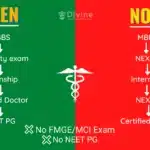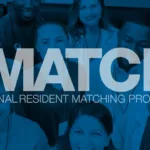Pursuing a medical education in the Caribbean represents a unique opportunity for students worldwide. With its diverse range of medical programs, the Caribbean offers an alternative path to those seeking to enter the field of medicine. This article delves into the various facets of Caribbean medical education, from understanding the educational landscape to financial planning, clinical experience, and the strategic advantages of studying in places like Grenada. The key takeaways provide a concise overview of the essential points to consider when exploring medical education options in the Caribbean.
Key Takeaways
- Caribbean medical schools provide diverse medical programs that are recognized in the U.S. and U.K., offering an accelerated route to a medical career.
- The cost of studying medicine in the Caribbean can be more affordable compared to the U.S. or U.K., with additional financial aid opportunities available.
- Students can gain valuable clinical experience through rotations in prestigious hospitals in the U.S. and U.K., leading to high USMLE pass rates.
- Caribbean medical education offers strategic academic advantages such as focused USMLE preparation and dual placement opportunities in the U.S. and U.K.
- Graduates from Caribbean medical schools are equipped to practice globally, with comprehensive support for those wishing to return and practice in India.
Understanding the Caribbean Medical Education Landscape

Overview of Medical Programs
The Caribbean region is home to a variety of medical programs designed to suit the needs of aspiring physicians from diverse educational backgrounds. Caribbean medical schools offer recognized programs that cater to students at different stages of their medical education journey. From traditional 4-year MD programs to more extended pathways like the 5-year Premed/MD and 6-year BS/MD programs, students have the flexibility to choose a route that aligns with their academic progress and career aspirations.
- 4-Year MD Program: Focuses on the core knowledge and skills for practicing medicine.
- 5-Year Premed/MD Program: Begins with a premedical foundation leading to the MD program.
- 6-Year BS/MD Program: Integrates a Bachelor’s degree with the medical curriculum.
These programs are structured to provide a comprehensive education, with a focus on preparing students for the USMLE and ensuring they are well-rounded physicians ready for the global healthcare environment. The multicultural and supportive learning atmosphere in the Caribbean enhances the educational experience, preparing students for the challenges of a medical career.
By considering alternative pathways, students can tailor their medical education to align with their career goals and personal circumstances.
Admission Criteria and Processes
The admission process for Caribbean medical schools is a critical step towards achieving your dream of becoming a physician. Prospective students must carefully navigate through various requirements to secure their place. The eligibility criteria typically include a minimum age of 18, a Bachelor’s degree, or at least 90 undergraduate credits. Admissions are merit-based, ensuring a fair and transparent selection process.
Financial considerations are also crucial, as students must demonstrate the ability to cover tuition and living expenses. This involves providing financial documents and obtaining a student visa, which includes securing medical insurance and other relevant paperwork. The flexibility of admission plans, such as early, regular, and rolling admissions, allows applicants to choose the timeline that best suits their needs.
The admission process is a gateway to global education opportunities, and understanding it is essential to your success.
Here is a brief overview of the application steps:
- Research and select a Caribbean medical school
- Meet the eligibility criteria
- Submit an application with academic transcripts and passport copies
- Prove English proficiency, if required
- Provide financial documentation
- Obtain a student visa
Each Caribbean medical school may have additional specific requirements, so it is imperative to review the details provided by the institution of your choice. By meeting these admission criteria and processes, students can embark on a journey that offers diverse programs with global recognition and comprehensive clinical exposure.
Comparing Caribbean Schools with Global Standards
When evaluating Caribbean medical schools, it’s crucial to assess how they stack up against global standards. These institutions are often recognized for their ability to prepare students for medical careers in the US and Canada, aligning with North American curricula. With experienced faculty and opportunities for clinical rotations in the US and UK, Caribbean schools provide a robust platform for medical education.
Accreditation is a key indicator of quality, ensuring that the education provided meets international benchmarks. For example, Avalon University School of Medicine boasts full accreditation by both CAAM-HP and ACCM, a testament to its commitment to excellence. Prospective students should prioritize schools with such credentials to ensure their qualifications are globally respected.
Financial considerations are also significant, with many schools offering scholarships and financial aid. The cost of education in the Caribbean is often lower than in countries like the USA or UK, making it an attractive option for many. Here’s a brief comparison of GPA requirements across various Caribbean medical schools:
| School | Minimum GPA Requirement |
|---|---|
| School A | 3.0 |
| School B | 3.2 |
| School C | 2.8 |
By understanding the nuances of Caribbean medical education, students can make informed decisions that align with their career aspirations and financial capabilities.
Financial Planning for Medical Studies in the Caribbean

Program Cost and Budgeting
When embarking on medical studies in the Caribbean, a thorough understanding of the program costs is essential. Tuition fees vary widely among institutions, and when combined with living expenses, the financial commitment can be significant. Here’s a snapshot of the average annual tuition fees for international students:
| Level of Study | Tuition Fee Range (USD) |
|---|---|
| Undergraduate | $8,000 – $40,000 |
| Postgraduate | $10,000 – $60,000 |
| Doctoral | $28,000 – $55,000 |
In addition to tuition, prospective students must budget for living expenses, books, and insurance. It’s crucial to research and account for these costs when planning your finances.
A comprehensive budget should include not only tuition but also accommodation, food, transportation, and other personal expenses. This foresight in financial planning is instrumental in making informed decisions about which schools to apply to and how to manage finances throughout the medical program.
Financial aid, such as scholarships and loans, can offer relief to students facing economic challenges. Early research and application for these opportunities are crucial, as they can be highly competitive. Utilize resources like university financial aid offices and online databases to find scholarships tailored to your needs.
Cost Comparison with India and Other Countries
When considering the pursuit of a medical degree in the Caribbean, a critical factor is the cost comparison with India and other countries. The Caribbean medical schools offer competitive tuition fees, often lower than those in the US or UK, making them an attractive option for many students. For instance, the cost of an MBBS course in the Caribbean ranges from US$ 3,500 to US$ 4,800 per semester, which can be a more feasible option for those looking to study medicine abroad.
In contrast, studying medicine in India can be highly competitive and expensive, with parents spending a significant portion of their income on education. The cost of medical education in the US, for example, can reach up to a crore per year in tuition fees alone. This stark difference in costs necessitates a thorough financial analysis for students and their families.
While the initial program costs in the Caribbean might appear higher compared to some Indian options, the long-term benefits such as faster routes to becoming a doctor and superior international exposure should be considered.
It is also important to factor in the cost of living, which can vary greatly between countries. Additional expenses such as flights, accommodation, and daily living costs can add up, making it essential to plan comprehensively. Investing in foreign stocks or international equity funds can be a strategic move to counteract currency fluctuations and secure finances in a more stable currency.
Ultimately, the decision to study medicine in the Caribbean versus India or another country should be based on a combination of cost-effectiveness, educational quality, and long-term career goals. Prospective students should conduct detailed research and consult with educational advisors to make an informed decision.
Scholarships and Financial Aid Opportunities
Securing financial aid is a critical step for students aiming to study medicine in the Caribbean. Scholarships and financial aid can significantly reduce the burden of high tuition fees and living expenses. It’s important to start researching early, as many scholarships have strict deadlines and require detailed applications.
Types of Financial Aid Available:
- Need-based scholarships
- Merit-based scholarships
- College-specific scholarships
- Country-specific scholarships
Financial planning is not just about covering costs, but also about exploring opportunities for scholarships and financial aid to ease the burden. By thoroughly estimating the costs and exploring financial aid options, students can take a step closer to realizing their medical education goals in the Caribbean.
Financial constraints are real, but so are scholarships. Many students miss out on available financial aid because they don’t look for it or assume they won’t qualify.
Clinical Experience and Residency Prospects

USMLE Pass Rates and Guarantees
The United States Medical Licensing Examination (USMLE) is a pivotal step for medical students seeking to practice in the U.S. Caribbean medical schools have become increasingly popular for their strong USMLE pass rates, particularly for Steps 1 and 2. High USMLE pass rates are often highlighted by these institutions, showcasing their commitment to preparing students for this critical examination.
Saint James School of Medicine was the first Caribbean medical school to offer a guarantee for passing the USMLE, reflecting a confidence in their educational program. While the overall USMLE pass rate for each step averages at around 94 percent, it drops to 75 percent for international medical school graduates, indicating the challenges faced by students outside the U.S. educational system.
It is important for prospective students to consider USMLE pass rates when evaluating Caribbean medical schools, as these figures can be indicative of the quality of education and preparation provided.
Caribbean medical schools often provide structured USMLE preparation programs, including access to resources and faculty guidance. This support is designed to equip students with the knowledge and skills necessary to excel in the exams. However, it’s crucial to understand that while schools may offer pass rate guarantees, the ultimate responsibility for success lies with the individual student’s dedication and effort.
Clinical Rotation Locations
Clinical rotations are a pivotal aspect of medical education, offering students the chance to apply their knowledge in real-world settings. Caribbean medical schools have established affiliations with ACGME-approved teaching hospitals primarily in the U.S., ensuring that students gain exposure to advanced medical practices and diverse patient populations. These rotations not only enhance clinical skills but also provide a platform for networking and securing letters of recommendation, which are crucial for residency applications.
The clinical rotation phase typically begins in the third year of the MD program, following the completion of basic sciences. Students have the opportunity to rotate through various specialties, gaining comprehensive clinical experience. Here’s a glimpse of the clinical rotation timeline:
- Year 3: Begin clinical rotations
- Year 4: Continue rotations and prepare for USMLE Step 2
Caribbean MD schools offer one-on-one support, tailored experiences, and dual placement opportunities for international careers, emphasizing quality education and clinical rotation support. This personalized approach ensures that each student’s clinical experience is aligned with their career goals and educational needs.
The strategic selection of rotation sites is essential, as it can significantly impact a student’s residency prospects and future career trajectory.
Residency Placement Support
Caribbean medical schools are increasingly recognized for their robust support in guiding students towards successful residency placements. A critical aspect of this support is the provision of clinical rotations in affiliated ACGME-approved teaching hospitals in the U.S., which are instrumental in enhancing a student’s application for residency. These rotations not only offer exposure to the U.S. healthcare system but also provide valuable Letters of Recommendation (LORs) from U.S. physicians, a key component in residency applications.
Clinical rotation experience is a significant factor that residency programs consider when evaluating candidates. It demonstrates the applicant’s familiarity with the U.S. healthcare system and their ability to adapt to its standards of care. Caribbean Medical Graduates may face challenges due to differences in education and fewer connections with U.S. residency programs compared to U.S. medical graduates. However, many Caribbean schools have established pathways to help bridge this gap, ensuring that their students are competitive applicants.
The journey to residency is multifaceted, with clinical rotations playing a pivotal role in providing real-world experience and networking opportunities that are crucial for a successful match.
While no institution can guarantee a residency placement, many Caribbean medical schools boast impressive match rates, a testament to their comprehensive residency support systems. Prospective students should inquire about each school’s residency match statistics and the support services available to maximize their chances of securing a residency spot.
Strategic Academic Advantages of Caribbean Medical Schools

Accelerated Pathway to Success
Caribbean medical schools offer an accelerated pathway to success, allowing students to complete their medical education in a shorter timeframe. This is particularly advantageous for those eager to enter the medical profession without the extended duration typical of traditional programs. For example, Avalon University School of Medicine (AUSOM) provides an Accelerated Medical Program that compresses the basic science coursework, enabling students to grasp foundational knowledge more rapidly.
The benefits of such programs are manifold:
- Reduced overall time to become a practicing physician.
- Lower total educational costs due to the shortened duration.
- Early entry into the workforce, which can lead to a quicker return on investment.
By streamlining the journey to a medical degree, students can focus on gaining clinical experience and preparing for licensure exams sooner.
It’s important for prospective students to carefully consider their options and understand the implications of an accelerated curriculum on their learning and future career. While the prospect of finishing sooner is appealing, it requires a high level of commitment and the ability to adapt to a rigorous academic schedule.
Focused USMLE Preparation
Caribbean medical schools offer a tailored approach to USMLE preparation, ensuring students are well-prepared for this critical step in their medical careers. The USMLE Step 1 first-time pass rate is over 85% since 2019, highlighting the effectiveness of the focused study programs.
- Year 2: Take USMLE Step 1
- Year 3: Clinical rotations and preparation for USMLE Step 2
- Year 4: Take USMLE Step 2
- Residency: Take USMLE Step 3 after the first year
Early and consistent preparation for these exams, integrated with medical school curricula, is essential for success.
Medical schools in the Caribbean, such as the American University of the Caribbean, provide comprehensive support for aspiring doctors, including guidance from faculty experienced in the USMLE process. This support system is designed to ensure that students meet the high standards set by the medical profession in the United States.
Dual Placement Opportunities
Caribbean medical schools offer the distinct advantage of dual placement opportunities, allowing graduates to pursue career options in multiple countries. This flexibility significantly enhances the career prospects of medical graduates, providing them with a competitive edge in the global job market.
- Graduates can choose to practice in the United States, Canada, or return to their home country.
- Accreditation by recognized bodies ensures eligibility for licensure in various jurisdictions.
- Strategic partnerships with hospitals and healthcare systems facilitate diverse clinical experiences.
The dual placement model not only broadens the scope of practice for medical professionals but also enriches their cultural competence and adaptability in different healthcare environments.
It is crucial for students to understand the implications of these opportunities on their long-term career goals and to seek guidance on the necessary qualifications and procedures for practicing in their chosen locations.
Navigating the Path to Becoming a Global Physician

Cultural Adaptation and Global Exposure
Embarking on a medical education in the Caribbean is not just about acquiring knowledge; it’s about embracing a new culture and the global exposure that comes with it. Students are encouraged to immerse themselves in the local community, gaining insights into diverse healthcare practices and patient interactions. This cultural immersion is a cornerstone of becoming a globally competent physician.
Caribbean medical schools offer a unique blend of academic rigor and cultural diversity, preparing students to work in a variety of healthcare settings around the world. Here are some of the key benefits:
- Exposure to a diverse patient population
- Training in culturally sensitive communication techniques
- Ethical considerations in a global context
By adapting to new healthcare systems, students learn to work with a variety of patients and problems, which is crucial for their future roles as adaptable and culturally competent healthcare providers.
Building a global professional network is an integral part of the medical education experience. Students have the opportunity to connect with peers, faculty, and professionals from around the world, which can lead to mentorships, collaborations, and career opportunities. This network becomes a valuable asset, providing a foundation for a successful and fulfilling career in medicine.
Returning to Practice in India
After completing medical studies in the Caribbean, graduates looking to return and practice in India will find a structured pathway to integrate into the Indian healthcare system. The transition involves understanding the Medical Council of India’s (MCI) regulations, ensuring qualifications are recognized, and completing any required examinations or internships.
The demand for qualified doctors in India is on the rise, with specializations like pathology witnessing increased interest due to a growing awareness of diseases and lifestyle changes. Here’s a brief overview of the steps to practice in India after studying abroad:
- Obtain an Eligibility Certificate from the MCI before enrolling in a foreign medical university.
- Clear the Foreign Medical Graduate Examination (FMGE) or the National Exit Test (NEXT) upon return.
- Complete a one-year internship in an MCI-recognized hospital if not done abroad.
- Register with the MCI or the respective State Medical Council to practice legally in India.
By aligning international education with the requirements of the Indian medical system, graduates can ensure a seamless transition and contribute to the nation’s healthcare sector.
Prospective students should also consider the long-term career benefits and the potential for growth in the Indian medical landscape when deciding to study medicine in the Caribbean.
Leveraging International Medical Education for Career Growth
The journey to becoming a global physician does not end with graduation. Leveraging an international medical education is pivotal for career advancement and opening doors to diverse opportunities. Caribbean medical schools offer unique opportunities for aspiring medical professionals, with strategic planning, financial considerations, and global networking. Diverse career prospects and admission criteria are key for success.
By engaging with international medical communities, students experience growth that shapes them into well-rounded healthcare professionals.
The benefits of studying medicine in the Caribbean extend beyond the classroom. Graduates often enjoy a competitive edge in the job market, thanks to the global recognition of their qualifications. Here are some ways to maximize the potential of an international medical degree:
- Connect with peers, faculty, and professionals at conferences and seminars.
- Engage in international internships and exchange programs.
- Utilize online platforms to join medical communities and forums.
These steps not only enhance employability but also foster professional growth. The international medical degree becomes a valuable asset, providing a foundation for a successful and fulfilling career in medicine.
Embark on your journey to becoming a global physician with Divine Education Abroad Consultancy. Our Fast-Track MD Pathway is designed to guide you through the complexities of international medical education, ensuring a seamless transition to a medical career in the US/UK. With no MCAT or NEET required, our 5-Year Medical Program boasts a 97x higher success rate and a 100% admission guarantee. Don’t let financial constraints hold you back; explore scholarship opportunities and affordable education pathways on our website. Take the first step towards your dream of becoming a US-qualified doctor. Visit our website now to find out more and secure your future in medicine.
Conclusion
In conclusion, the Caribbean offers a distinctive and viable pathway for aspiring medical professionals. With a variety of accredited medical programs, competitive costs, and strategic advantages such as accelerated pathways and global recognition, students can tailor their medical education to align with their career goals and personal circumstances. The region’s medical schools provide not only a multicultural learning environment but also the necessary support for clinical rotations and residency prospects. While financial considerations remain crucial, the potential return on investment and the opportunity to practice in diverse healthcare systems make the Caribbean an attractive option for many. Prospective students are encouraged to conduct thorough research, consult with educational advisors, and consider the long-term benefits when making their decision to pursue a medical career in the Caribbean.
Frequently Asked Questions
What are the eligibility criteria for admission to Caribbean medical schools?
Eligibility criteria typically include a minimum age of 18 upon arrival, a Bachelor’s degree or at least 90 undergraduate credits, and proof of English proficiency if required.
How does the cost of medical education in the Caribbean compare to India and other countries?
Caribbean medical schools offer competitive tuition fees, often lower than those in the US or UK. For instance, MBBS courses range from US$ 3,500 to US$ 4,800 per semester, which may be more feasible compared to the high costs of medical education in countries like the US.
Are there financial aid opportunities available for students in the Caribbean?
Yes, many Caribbean medical schools offer scholarships and financial aid to support students. Prospective students should inquire directly with their chosen institutions for specific opportunities and eligibility requirements.
What clinical experience can students expect during their medical studies in the Caribbean?
Students can expect clinical rotations in prestigious hospitals in the US and UK, providing diverse exposure and contributing to high USMLE pass rates. These rotations are completed at affiliated ACGME-approved teaching hospitals.
Can graduates of Caribbean medical schools practice medicine in India?
Yes, graduates can return to practice in India. The medical schools often provide guidance on the necessary qualifications and procedures to ensure a smooth transition to practicing medicine in India.
What are the USMLE pass rates for Caribbean medical school students?
Caribbean medical schools pride themselves on high USMLE pass rates, with some schools reporting over 85% first-time pass rates since 2019. However, no program can guarantee a 100% pass rate due to the nature of the exams.














